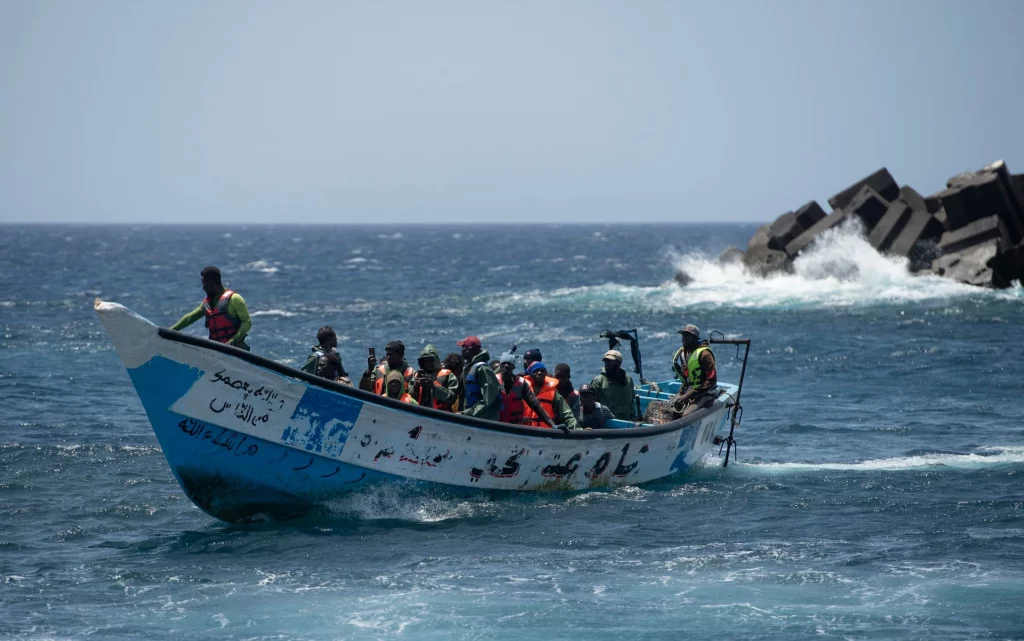Spanish police have arrested 19 people accused of killing and torturing migrants during a deadly boat journey from Senegal to the Canary Islands, where at least 50 people went missing. The arrests followed shocking testimonies from survivors who described violence, abuse, and passengers being thrown overboard alive.
According to the Spanish National Police, the wooden boat was rescued adrift south of Gran Canaria on August 24, carrying 248 survivors. Authorities believe the vessel originally had about 300 people on board, meaning dozens are still unaccounted for and presumed dead at sea.
Investigators said survivors told them that a group of passengers began attacking others during the 11-day voyage. Some were beaten, mistreated, and accused of causing problems on the boat. Police revealed that in several cases, victims were deliberately thrown into the ocean and left to drown, while others who fell in by accident were denied rescue.
Disturbingly, some killings were reportedly linked to superstitions. Passengers accused certain individuals of being “witches” who brought bad luck, such as engine breakdowns, storms, or food shortages. Others were allegedly murdered simply for protesting against the harsh and dangerous conditions on board.
One passenger who was seriously ill when the boat was intercepted later died in hospital, adding to the confirmed death toll. Police confirmed that all 19 suspects are now being held in pretrial detention and face charges including homicide, torture, assault, and facilitating irregular migration.
Spain remains one of the main gateways for irregular migration into Europe, along with Italy and Greece. Thousands of migrants risk their lives each year attempting the perilous Atlantic crossing to the Canary Islands. Strong ocean currents, overcrowded boats, and poor maintenance make the route especially dangerous.
Official data shows almost 47,000 migrants reached the Canary Islands in 2024, marking a record for the second year in a row. Authorities say the surge came as stricter controls in the Mediterranean pushed more migrants to attempt the Atlantic route. However, numbers appear to be declining in 2025, with arrivals falling by 53 percent between January 1 and September 15 compared with the same period last year, according to Spain’s Interior Ministry.
Despite the drop, the tragedy highlights the extreme risks faced by migrants on this journey. With reports of violence, superstition-driven killings, and worsening conditions at sea, authorities warn that the Atlantic route remains one of the deadliest migrant pathways into Europe.

